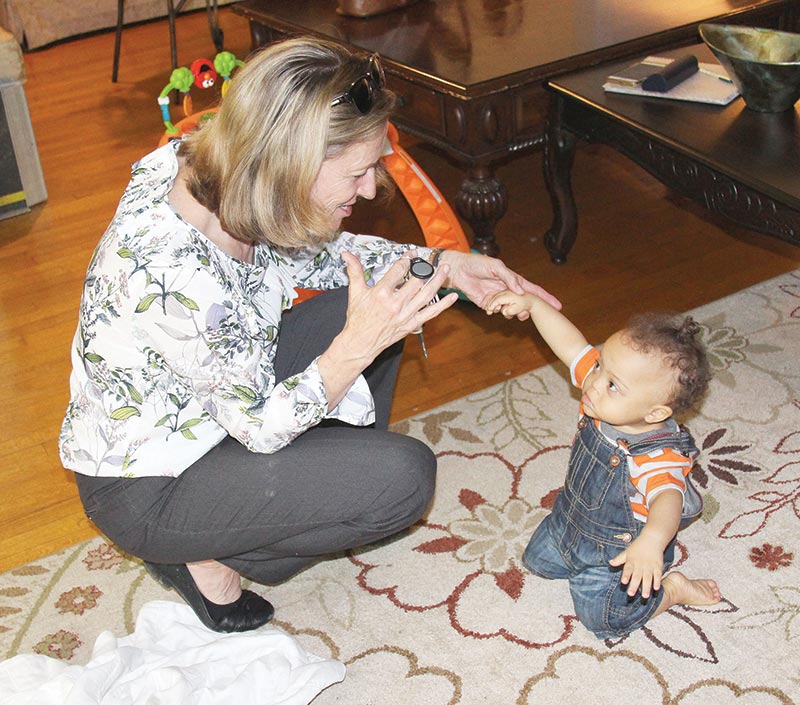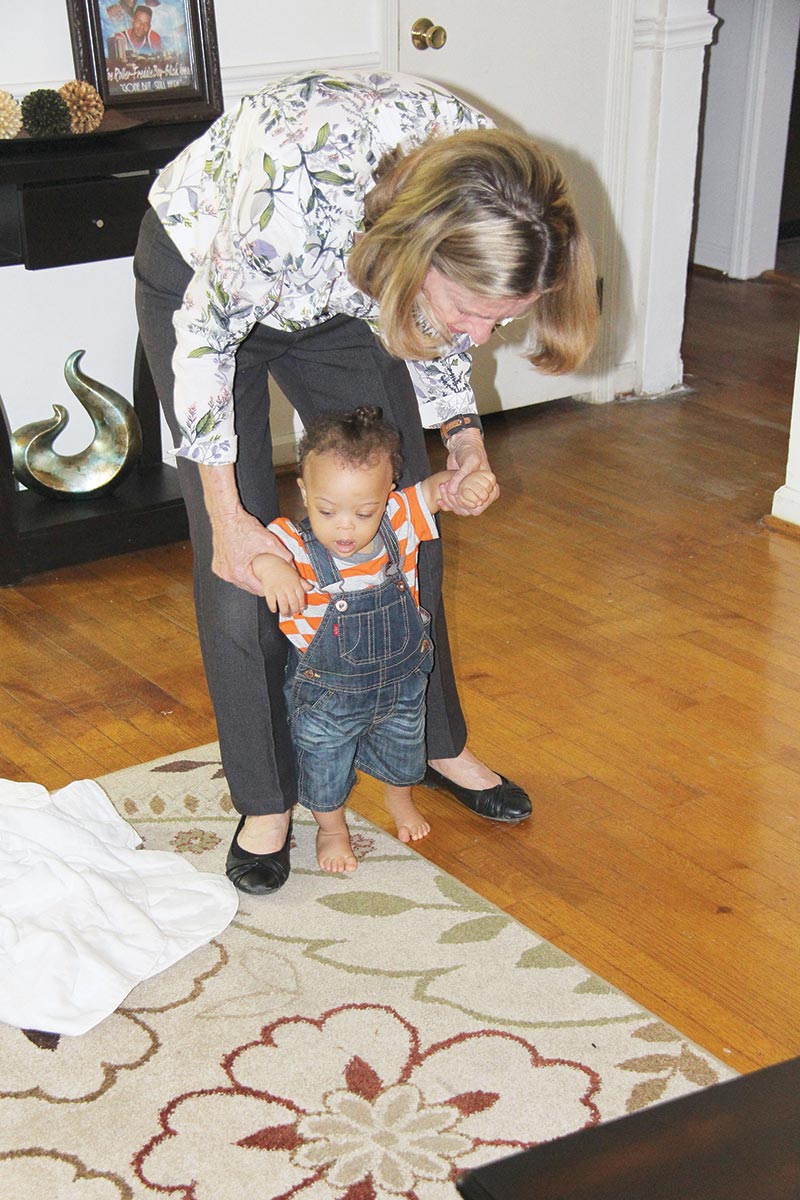Hinton part of grant team using telepractice to support early inteventions
Article body
An Auburn University College of Education faculty member is leading a team to use telepractice and routines-based home visits to help families served through Alabama’s Early Intervention System care for their children with developmental delays.
The award, sponsored by the Alabama Department of Early Childhood Education, investigates the implementation of routines-based home visits using telepractice to implement early intervention services when barriers, including COVID-19, prevent families from participating in home visits. The grant also supports fidelity checks and coaching through telepractice, and supplements service delivery through e-learning.
The grant began prior to the COVID-19 pandemic, but the need for remote instruction caused by the disease outbreak put an unanticipated emphasis on the need for telepractice.
Dr. Vanessa Hinton, associate clinical professor and coordinator for the college’s special education distance master’s degree program, has extensive experience in delivering remote instruction or distance education. Her role in the grant is to train practitioners in how best to use distance education to help their clients. Hinton has been working with the Alabama Department of Rehabilitation Services (ADRS), which is the lead agency for early intervention, on various projects promoting evidence-based practices over the past few years.
“We had been working on this for about a year and, of course, had no idea the pandemic was coming,” Hinton said. “But I work in distance learning for our Department of Special Education, Rehabilitation, and Counseling, and through my partnership with the Alabama Early Intervention System, we were already discussing telepractice as a way of helping providers. I am basically instituting an established model or practice, but using my experience in distance learning to make it work. It is a collaborative effort.”
Hinton explained that few investigators at the university focus on the importance of early intervention for children with developmental disabilities such as autism spectrum disorder or cerebral palsy. Early intervention is for families of children with disabilities from birth through age 2, and it can involve child care, but it is not preschool.
Instead, it focuses on services provided to caregivers in a child’s natural environment that empower caregivers to be the first and best teachers of their child. ADRS is the lead agency for the Alabama Early Intervention System, and it collaborates with the Office of School Readiness.
Dianna Tullier, an Auburn early childhood special education graduate and the director of First Teacher Home Visiting in the Department of Early Childhood Education, helped write an $11 million Preschool Development Birth to 5 grant for the state, funded through the federal Department of Health and Human Services. The telepractice portion is one of many grant-funded projects.
“What I do is locate early intervention agencies that have been trained in the Routines-Based Home Visiting Model developed by Dr. Robin McWilliam from the University of Alabama,” Hinton explained. “This is the model that has been adopted by the Alabama Early Intervention System, and the model uses the in-home routines of the family. Using existing routines of the family, you support the caregiver in embedding strategies and interventions for the child. The intervention is performed by the caregiver. Too often professionals come in and tell the caregiver what to do and leave, but with this model we support them and help them build capacity. This derives from the adult learning theory because the caregiver and interventionist partner together. It must be done in a way that the interventionist is not coming off as an outside ‘expert.’ We may be experts in special education or therapy, but the caregiver is the expert about the child, how the child lives his or her life and what the child needs to accomplish daily living. Routines-based home visits require role release. The family member is in charge. You are there to support the caregiver, and in this phase of the grant that support is being offered through telepractice.”
Telepractice is simply the application of telecommunications technology to deliver information, guidance and support — in this case, providing early intervention services to support the caregiver and child.
Meanwhile, as opposed to in-home visits, Hinton’s role is to coordinate the telepractice aspect of the routines, instead of teach the routines. She helps professionals understand how best to use distance technology to help the caregivers at home.
“Telepractice and early intervention pair well together,” Hinton said. “Because early intervention is a family consultation model, we do not feel the early intervention provider has to be directly in the home to help caregivers with their day-to-day routines. In the first part of the routines-based visit, the family sets the agenda. The family knows its routines and what they want to work on. So you are pairing a service with a family’s routines. The professional must stay true to the model by letting the family lead the visits. Utilizing telepractice technology will allow us the opportunity to do this while maintaining a critical level of fidelity.”
“These children are often frail and at-risk,” she concluded. “So the original intent of the grant was given an even greater emphasis because of the virus outbreak. It’s new, it’s wide open and it is timelier than imagined because of COVID-19.”



